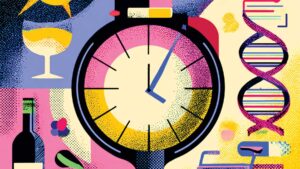Yahoo Lifestyle featured the ProLon fasting-mimicking diet developed by USC Leonard Davis School of Gerontology faculty member Valter Longo, whose research focuses on how periodic fasting may support healthy aging. Longo has said the diet is designed to provide the benefits of fasting while still allowing people to eat.
PsyPost featured research led by Mara Mather, reporting that slow, controlled breathing during meditation was linked with reduced blood levels of amyloid-beta proteins associated with Alzheimer’s disease risk. “Despite hearing all the same mindfulness instructions, the two conditions showed opposite effects after one week of daily practice,” Mather said. “The mindfulness alone condition showed increases in plasma amyloid-beta while the mindfulness plus slow breathing condition showed decreases.”







